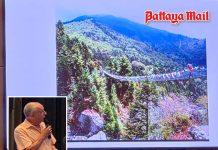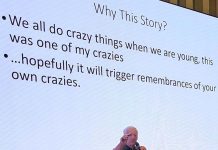It was time for the PCEC’s backup plan when their scheduled speaker had to back out at the last minute because of some injuries suffered during an accident. So, at the September 18 meeting of the Pattaya City Expats Club, they implemented their backup plan, presenting three short videos from the website of a nonprofit organization whose primary purpose is devoted to spreading ideas, usually in the form of videos of short powerful talks.
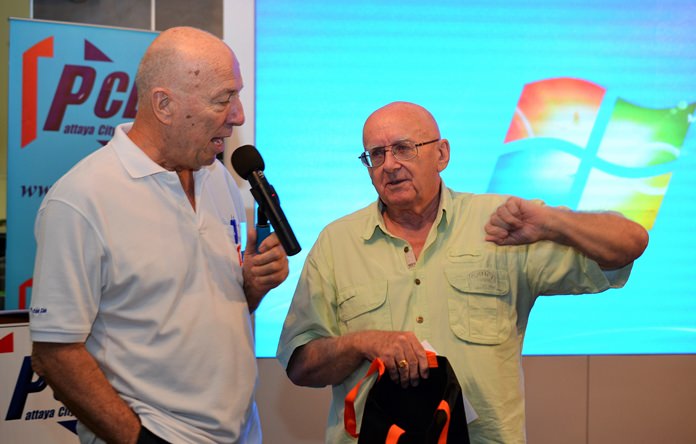
Commonly referred to as “TED Talks” (which began in 1984 as a conference where Technology, Entertainment and Design (TED) converged). Today, their videos cover numerous and varied topics; from science to business to global issues offered in more than 100 languages.
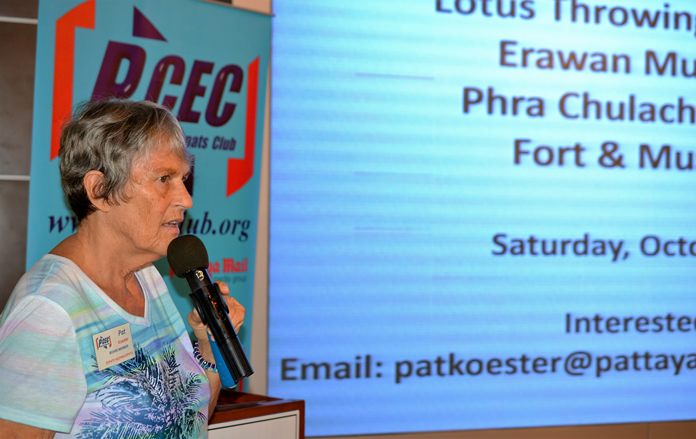
MC Roy Albiston introduced the first video, which was a talk titled, “Every piece of art you’ve ever wanted to see up close and searchable” given by Amit Sood, director of Google’s Cultural Institute and Art Project, and Google artist in residence Cyril Diagne. His presentation noted that with the help of art museum curators all over the world, Google has created an online platform where anyone can explore the world’s greatest collections of art and artifacts in vivid, lifelike detail. Sood likened it to a “cultural big bang.” He said that with the program you could travel through time, for example taking hours to examine all the arts and culture images from a certain decade.
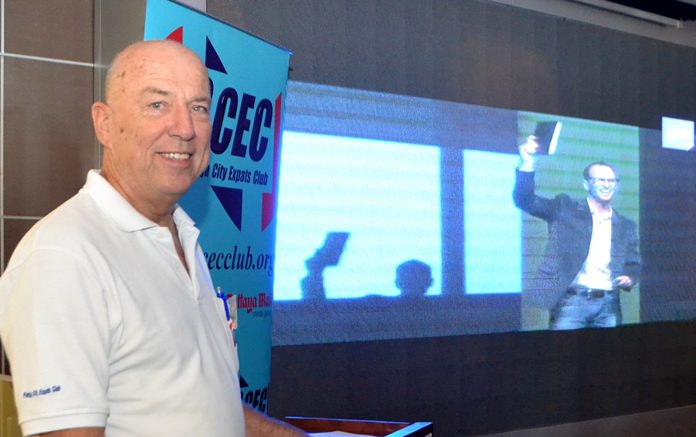
Or you might want to take a virtual art trip, visiting every portrait in every museum, or every image representing a horse, or even an emotion like happiness. In order to make it more fun for children, they’ve created a program where you can put a video of your face on one half of the screen, and then as you move around and make different expressions, the program will show a stream of images from the collection to match your every move and expression.
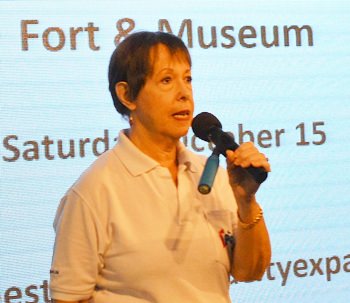
The second video introduced by Roy was “The Airbnb Story” by Airbnb co-founder Joe Gebbia. The presentation described how it all started when Gebbia and his friend, both industrial design majors, quit their jobs and decided to become entrepreneurs. Problem was that when the rent on their large San Francisco apartment doubled, they couldn’t afford it. But, when they learned that all the hotels in town were sold out because of a big weekend conference, they got the brilliant idea to put an airbed in the apartment’s extra space and offer to rent it out. They put the word out to their industrial design friends, and 48 hours later they were deluged with inquiries.
They did the same thing for a big conference in Dallas the following month, and for the Democratic National Convention in Denver in August 2008. In order to create traffic to their website, they created two breakfast cereals – Obama Os and Cap’t McCain, which they sold for $40 a box. They made $25,000, but more importantly the project got them an interview on CNN and attracted the attention of an incubator program that helps fund entrepreneurs.
They soon realized that people who travel all over the world are interested in renting private spaces, while property owners are just as interested in renting out their properties. Now, he says, Airbnb has a wide variety of rental properties listed in countries around the world (including Thailand). You can book a Frank Lloyd house in Wisconsin, Barry Manilow drummer’s apartment, boats, castles, private islands, even a tree house or an igloo or a tent so you can be the first one in line to buy the iPhone4. “Our market is widening,” said Gebbia. “We’ve blossomed into renting space, and all we did was scale up what we did in our apartment. Airbnb won’t change the world, but it will change how people experience it. It’s all about connecting with real people, renting their space,” he said.
The third and last video was James Veitch describing “The agony of trying to unsubscribe.” After several unsuccessful attempts at trying to unsubscribe from receiving marketing emails about an upcoming supermarket opening, he decided to try playing a game. He answered the next email, “I’m literally excited about the opening!!! What do you need from me?” and “I’m thinking about fireworks and a bouncing machine.” After an exchange of several more hilarious, nonsensical emails, he finally received an email saying, “Your case number is #99———. Thank you for your interest.” He replied, “Your case number is #——————,” and back and forth it went.
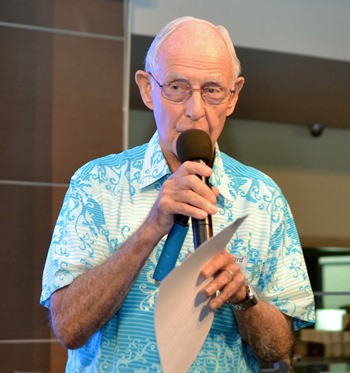
Then he decided to set up an auto reply program for future unwanted emails. The program replies, “Thanks for your email. Your case number is 1” and increments the number by 1 with each reply. He said the auto reply program is currently up to #21,000. The moral of the story, Veitch said, is when you get unsolicited emails, “don’t fight the frustration; let it be the catalyst for a game.”
After the presentation, MC Roy Albiston brought everyone up to date on upcoming events and Judith Edmonds conducted the Open Forum, where questions are asked and answered about Expat living in Thailand, especially Pattaya.
For more information on the PCEC’s many activities, visit their website at www.pcecclub.org.



